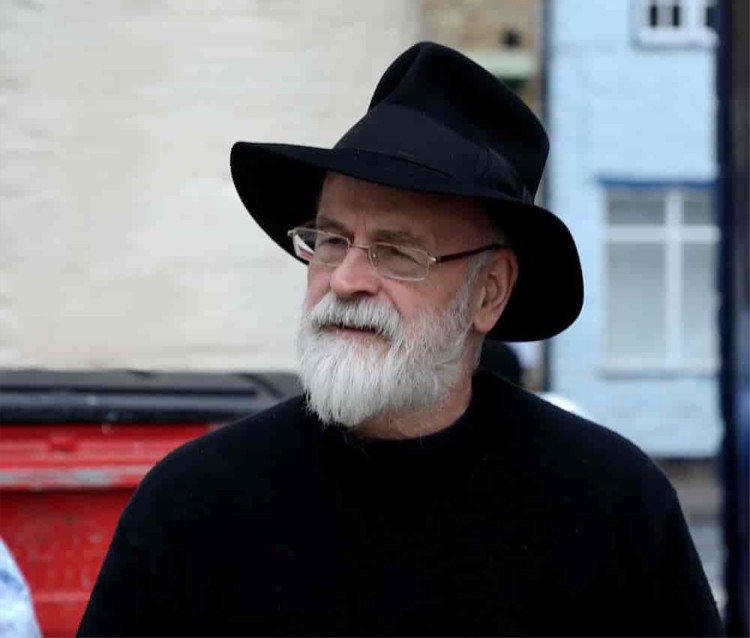

‘How To Die: Simon’s Choice’ by Rowan Deacon
- Title ‘How To Die: Simon’s Choice’ by Rowan Deacon
- Author Rowan Deacon (director)
- Year 2016
- Language English
- Tags Suicide Tourism Documentary Self-determination Effects on Familiy
- Legislative context Suicide Act, 1961, s 2 (United Kingdom) Assisted Dying (No.2) Bill 2015-16 (United Kingdom)
- Author of entry Joe Wood
Simon Binner is a successful businessman and fun-loving father who has been diagnosed with an aggressive form of Motor Neurone Disease (MND, also known as amyotrophic lateral sclerosis). The documentary begins in June when Simon’s speech is already slurred and he has to communicate via writing, expressing his gratefulness to his wife Debbie and other family members but also his frustration at his deteriorating condition. He emails Dr Erika Preisig who runs an assisted dying clinic in Basel, Switzerland asking for an ‘eccentric, rock’n’roll version’ of her service. Simon and Debbie travel to Basel to talk with Erika and he sets November 2, his birthday, as the date for his assisted death. Aware that his health is deteriorating rapidly, Simon brings forward an annual reunion of university friends and organises one of his regular games parties at home. By September, Simon requires a carer to dress and walk but finds this assistance grants him increased independence rather the opposite. He describes how Debbie and others are trying to convince him to delay his assisted death, and says that he is reconsidering his decision to end his life. Cut to October and Simon has tried to hang himself, which makes his friends and family realise how seriously he wants to die. His assisted death in Switzerland is brought forward and the family organise a farewell party at home. As Simon is shown boarding the plane to Switzerland with his ‘five musketeers’ of accompanying family and friends, the UK’s Director of Public Prosecutions explains the legal ramifications of accompanying someone to end their life. The group have a final meal in Switzerland and the following day Simon is shown at Erika’s clinic answering the required legal questions and pulling the ring to release the perfusion which will end his life. The film ends with footage of Simon’s funeral and mixed reactions from Debbie and others a couple of weeks later.
Made in cooperation with the Open University, the film examines different perspectives in the contemporary debate about assisted dying in the UK without taking one side, a delicate position which was admired by reviewers. While it gives plenty of screentime to Simon and his reasons for choosing to end his life, it also includes the ambiguous and often distraught reactions from those around him, including his wife Debbie, his mother, and other relatives and close friends. Some feel he is going before his time, perhaps as an unretractable ‘big gesture’ which corresponds with his large personality, and worry he’s made a serious decision that he feels he can’t back out of. Through interviews, home video and recordings of Simon’s written words made by an actor (who Simon is shown choosing himself) the film addresses ideas of rationality, shared decision-making, and gender identity – for Simon, the most difficult aspect of MND is how ‘unmanly’ it makes him feel. The film was produced while a significant Assisted Dying Bill was being considered in the UK Parliament and recordings from the debate and protests associated with it are played over footage of everyday suburban life (semi-detached housing, cars on roundabouts, lawns being mown, birds in trees) in a way that normalises Simon’s predicament without advocating for his choice: as Simon’s mother observes after his death, Simon showed bravery for deciding not to let his MND take its distressing course but ‘The other people as stuck it out are brave as well’. At the same time, the film provoked controversy for depicting the moments around Simon’s assisted death, despite last-minute pressure meaning his actual death was not screened. Moreover, the apparently non-partisan approach of the film means it has been interpreted differently by different interest groups. Dignity in Dying claimed the film demonstrated the unnecessary additional suffering caused by Simon not having access to an assisted death in the UK, while several groups opposed to assisted dying promoted how Debbie felt ‘more, not less, conflicted about the subject’ after Simon died. The film won Best Documentary on a Contemporary Theme (Domestic) at the 2016 Grierson Awards and was included in their 50 best documentaries of the last 50 years in 2022.
Suggested citation
-
How to Die: Simon’s Choice, Assisted Lab’s Living Archive of Assisted Dying, Nov 2024 <link>
Reviews
- Lucy Mangan, How to Die: Simon’s Choice review – a beautiful film about the complex issue of assisted dying, The Guardian, 2016 → theguardian.com
- Jules Morgan, My life, my death: my choice?, The Lancet, 2016 → thelancet.com
- Amy Burns, You didn’t have to support his decision - but please don’t judge him, The Independent, 2016 → independent.co.uk
- Melinda Houston, How To Die: Simon’s Choice - a thoughtful look at assisted suicide, Sydney Morning Herald, 2016 → smh.com.au
Media citations
- Assisted suicide: ‘I was devastated by my husband’s assisted death’, BBC Victoria Derbyshire programme, 2018 → bbc.co.uk
- BBC film on right-to-die man ‘not pro-euthanasia’, The Guardian, 2016 → theguardian.com
- Assisted dying set to attract renewed attention amongst the public – but is the law likely to change in the near future?, BBC Website, 2016 → bbc.co.uk
- Why didn’t I get a say in my husband Simon’s right to die?, The Telegraph, 2016 → telegraph.co.uk
- ‘Devastating and inspiring’: Emotional outpouring after 1.2 million viewers watch the heartbreaking moment a British father took his own life at a Swiss suicide clinic with his wife at his side, Daily Mail, 2016 → dailymail.co.uk
Interest Group citations
- Dignity in Dying, Our Statement on ‘How to Die: Simon’s Choice’, 2016 → dignityindying.org.uk
- Humanists UK, Humanist Simon Binner’s final moments to be broadcast in ‘How to Die’ documentary, 2016 → humanists.uk
- Care Not Killing, On Her Husband’s Assisted Suicide, 2016 → carenotkilling.org.uk
- Christian Concern, ‘How to Die’: The BBC’s glorification of assisted suicide, 2016 → christianconcern.com
- Not Dead Yet, Disability, Assisted Suicide and the Film Industry, 2016 → notdeadyetuk.org
Legal and Paralegal citations
- Written Evidence, Health and Social Care Committee: Assisted Dying/Assisted Suicide Inquiry, 2022 (Mandy Appleyard) → committees.parliament.uk
- Assisted Dying Bill, Second Reading, 2021 (Lord O’Donnell) → hansard.parliament.uk
- Written Evidence, House of Commons Health Committee: Suicide Prevention, Sixth Report of Session 2016-17, 2016 (Dignity in Dying) → data.parliament.uk
Related Media
LinkedIn Profile
Simon Binner’s LinkedIn profile where he advertised his death and funeral ahead of time
- Simon Binner’s LinkedIn profile where he advertised his death and funeral ahead of time uk.linkedin.com ↗
Website
Grierson’s Trust: 50th Anniversary Personal Stories
- Grierson’s Trust: 50th Anniversary Personal Stories griersontrust.org ↗
Related Archival Entries
'Terry Pratchett: Choosing to Die' by Charlie Russell

Charlie Russell (director), Terry Pratchett (writer)
After being diagnosed with Alzheimer’s, renown author Terry Pratchett investigates in a television documentary the only assisted death option available to residents of the United Kingdom: travelling to Switzerland to seek the option through Dignitas.